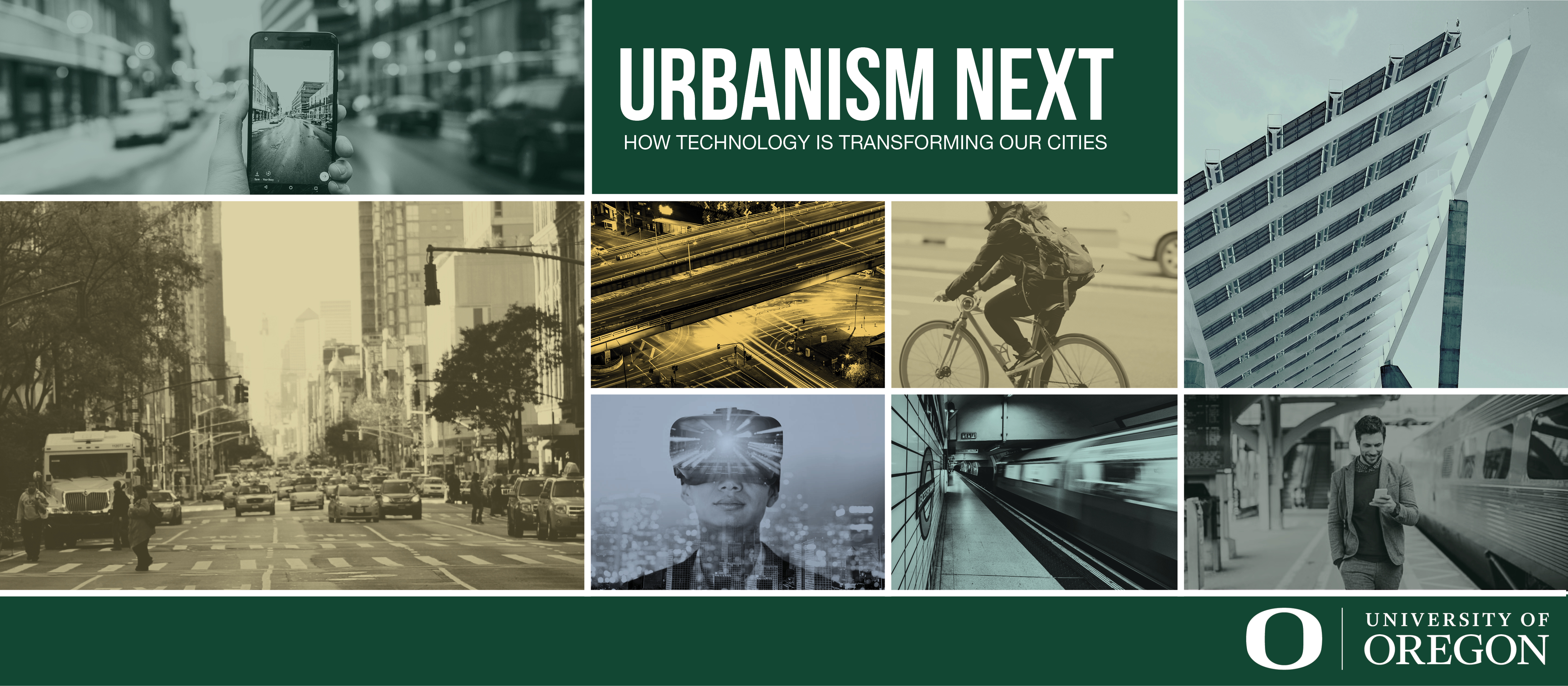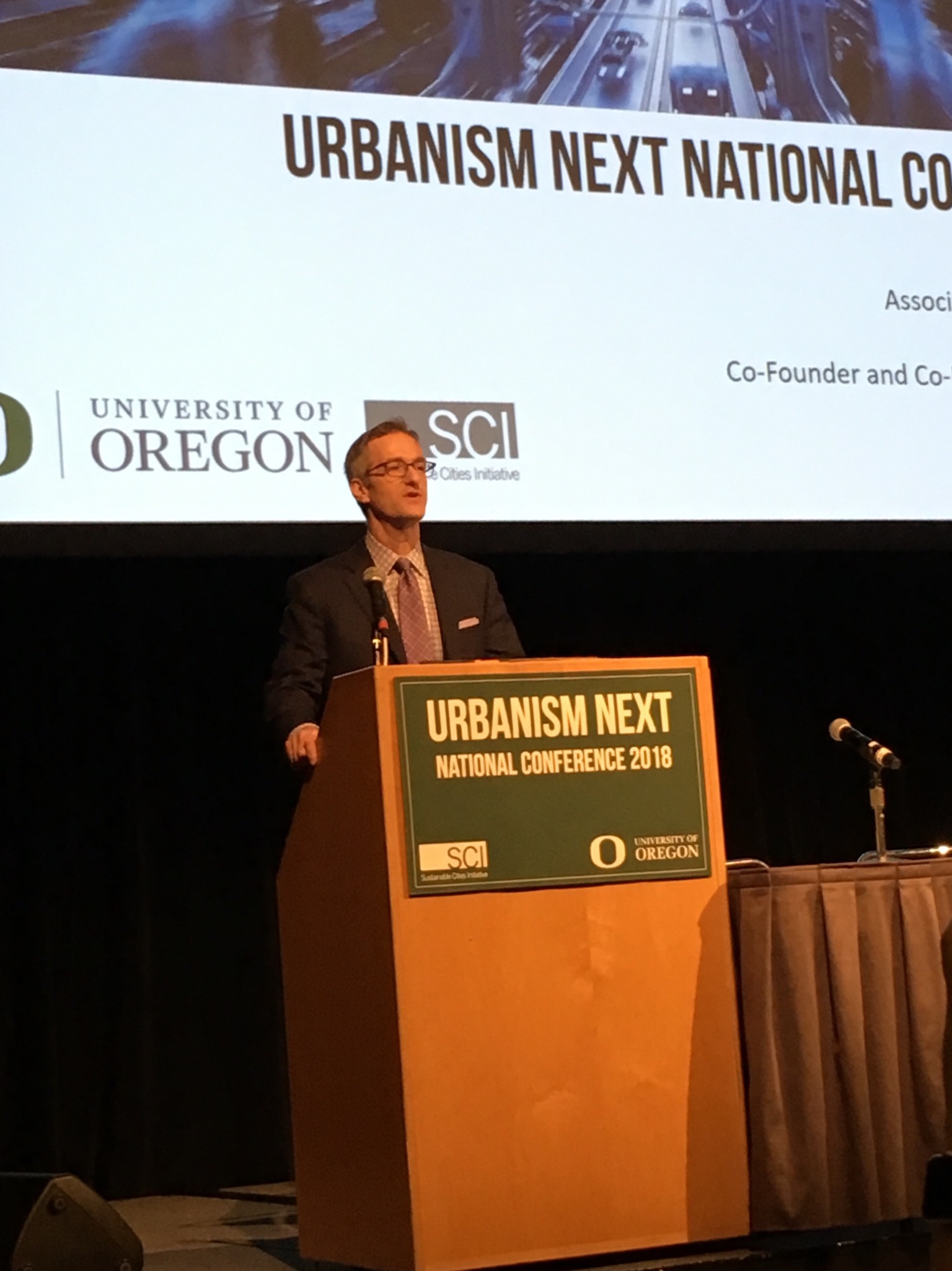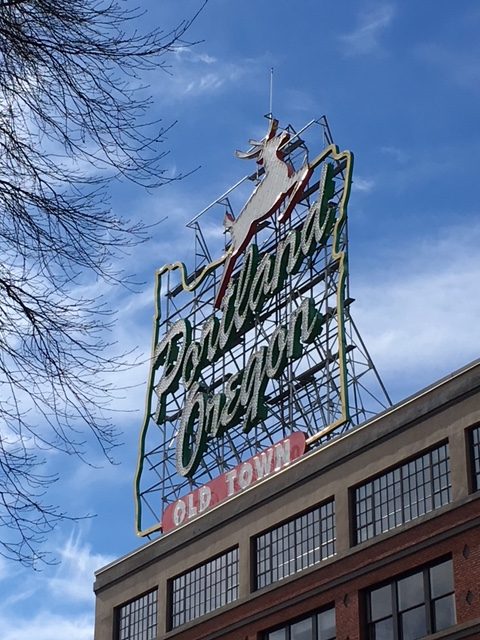
Post by Daniel Manichello, M.R.P. ’19
Earlier this month I was able to attend a three-day conference in Portland, Oregon with the support of the City and Regional Planning department. The Urbanism Next conference explored the impacts of emerging innovations such as autonomous vehicles, e-commerce and the sharing economy of cities. Organized by the University of Oregon’s Sustainable Cities Initiative, the conference brought together the APA, the AIA, the American Society of Landscape Architects (ASLA) and the ULI to consider both the unique challenges and opportunities these issues represent.
There was a special focus on autonomous vehicles (AVs) given the rapid progress that tech firms have made in developing and deploying self-driving vehicles. This disruptive technology was often framed as leading towards either a dystopian or utopian type urban future at the conference. Many amongst the city planners, transit officials and real estate interests in Portland are wary of increased congestion and “zombie” cars circling city streets waiting for their pick up. If AVs allow for coordinated routing and closer spaced travel at highway speeds, then wouldn’t that exacerbate urban sprawl?

The recent tragedy in Arizona, where a pedestrian was struck and killed by an autonomously-driven Uber, might check the enthusiasm many feel about the promised safety of the driverless era as well.Those on the utopian side see an opportunity to rethink the street design and undermine the case for car ownership by promoting shared mobility solutions. AVs, robotaxis and the like can bridge first and last mile connections where mass transit can’t.
Urban land devoted to parking could be reallocated to a host of beneficial uses and users. If AVs, and major e-commerce operators power vehicles electrically, harmful emissions would continue dropping. A step further would be to adopt cleaner sourcing technologies, meaning a major source of fossil-fuel reliance could disappear. There was really no end to the divergent, interesting and insightful viewpoints shared.

As a student, I feel better prepared and ready to engage across disciplines and across sectors to ensure that innovation is leveraged to support land use, transportation, environmental and community goals.